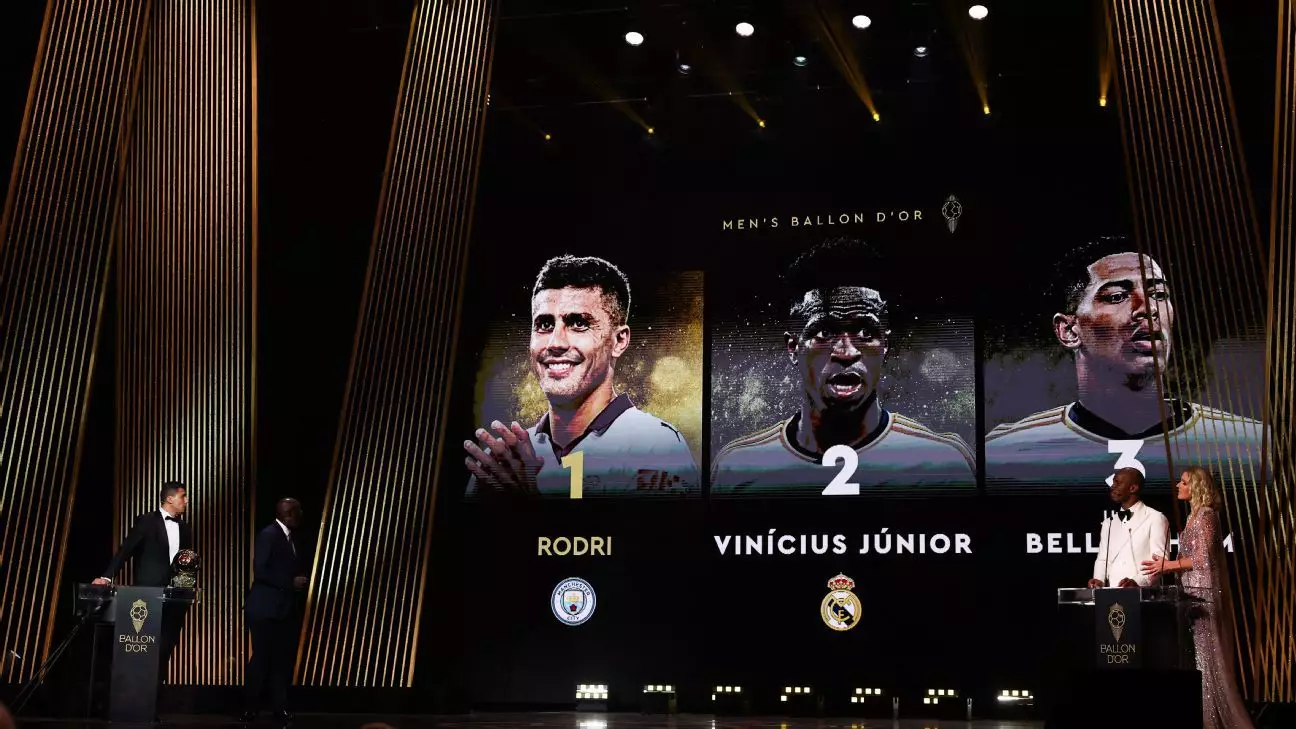The recent Ballon d’Or ceremony in Paris stirred considerable controversy, most notably when LaLiga president Javier Tebas vociferously criticized Real Madrid for their decision to boycott the event. This decision was sparked by the revelation that Manchester City’s Rodri would be the winner, relegating Real Madrid’s own Vinícius Júnior to a position of disappointment. This incident not only highlights the competitive spirit prevalent among elite football clubs but also reveals deeper issues surrounding sportsmanship and institutional practices within football governance.
Real Madrid’s choice to abstain from the Ballon d’Or ceremony was presented as a protest against what they perceived as an unjust voting process. The club’s management appears to feel wronged by France Football’s decision and has publicly aired their grievances. However, Tebas’s remarks hint at a fundamental misunderstanding between Real Madrid’s approach and the underlying principles of sportsmanship. By declining to partake in the ceremony, Madrid is distancing itself from important traditions in football, namely acknowledging and celebrating achievements, regardless of personal outcome.
Tebas’s comment that Real Madrid has lost its gentlemanly spirit resonates strongly. The values of respect for one’s opponents, humility in defeat, and honor in competition are cornerstones of sportsmanship, and many would argue that the club’s actions undermine those principles. Instead of using this moment as an opportunity to uplift Vinícius and his accomplishments, the boycott casts a shadow over the club’s legacy.
Adding further complexity to the narrative is the opinion of former Real Madrid star Karim Benzema. While he expressed empathy for Vinícius’s disappointment, Benzema’s comments also underscore the notion that talent must sometimes succumb to the whims of award politics. His praise for Vinícius’s contribution to the team’s success during the last season is a reminder of the fine line between individual accolades and collective triumph.
Benzema’s critique of Rodri, suggesting that while he is a competent player, he lacks the flair that Vinícius brings to the pitch, serves as a defense of his former teammate. He views Vinícius as deserving of the Ballon d’Or, not just for the numbers—24 goals and 11 assists—he amassed, but for his dynamic presence in pivotal moments, including the Champions League final victory against Borussia Dortmund. This endorsement reinforces the idea that Vinícius is not merely a participant but a defining figure in last season’s narrative.
Despite the immediate disappointment, Benzema remains optimistic about Vinícius’s future. His faith that the Brazilian will eventually claim the coveted Ballon d’Or reflects a deeper understanding of talent development and persistence in the face of adversity. Vinícius’s emotional response to the award’s outcome, as relayed by Benzema, encapsulates the harsh realities of competitive sports where deserving players may not always receive the recognition they merit.
The Ballon d’Or controversy ignites discussions about the importance of recognizing both individual and team contributions within the realm of elite football. It serves as a reminder that the spirit of competition is rooted not only in winning but also in acknowledging the efforts of all players—and the integrity that should prevail regardless of personal disappointment. As football evolves, so too must its attitudes towards awards and recognition, ensuring that the values esteemed by the sport remain intact.

